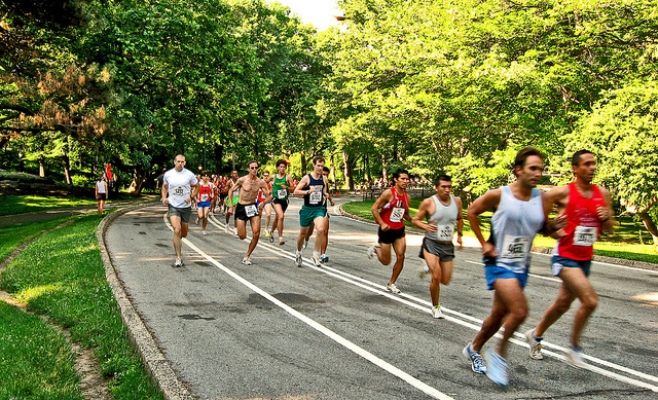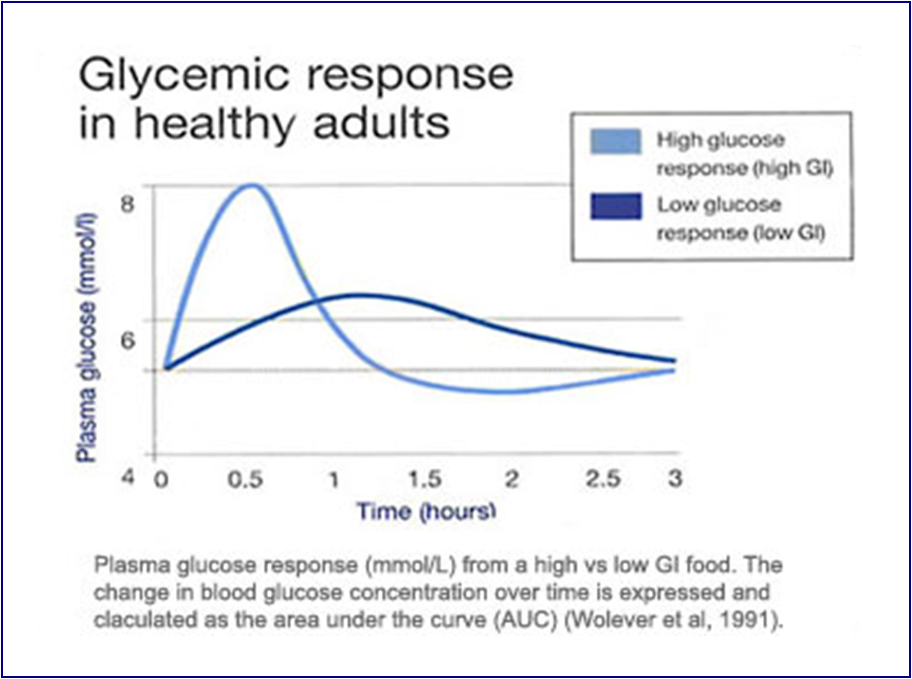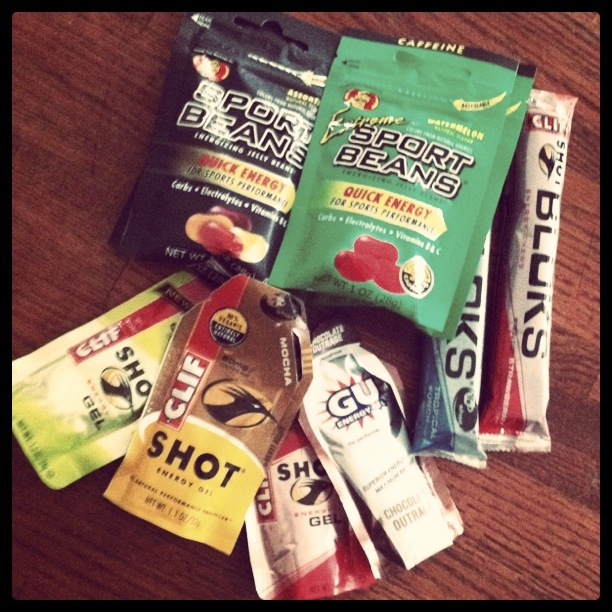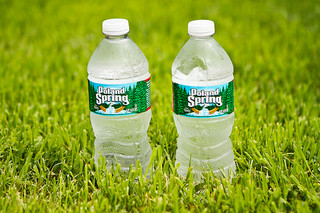Warning: Parameter 2 to wp_hide_post_Public::query_posts_join() expected to be a reference, value given in /home/fearlessmen/public_html/wp-includes/class-wp-hook.php on line 310
 I’m right in the midst of my first half marathon training. I’m running 15-20 miles a week, and my first half marathon race is just two weeks away.
I’m right in the midst of my first half marathon training. I’m running 15-20 miles a week, and my first half marathon race is just two weeks away.
Just two years ago I would have never contemplated running 13.1 miles in one outing. But with the right preparation, my body is not racked with pain, and I really do feel ready for something I never thought I could build the endurance for.
At 6’3”, 215 pounds, I’m not really the ideal body weight for a long distance run. I have some lingering spine and ankle injuries. It doesn’t matter. With the right first half marathon training plan, I’m good to go!
If you’re considering doing a 13.1 mile race, here’s what to consider, how to plan, and how to prepare your body for first half marathon training.
Find A Running Plan That Fits You
Check out several different running plans. Figure out which ones work for your body and your schedule. Don’t be daunted about the long runs at the end of a first half marathon training schedule.
Being consistent will prepare your body and mind for long runs—something you won’t have to do for months from now.
Many running plans suggest someone run 4-5 times per week. My body just can’t take that many miles without more rest. I’ve found that running 3 times per week is best for me. Below are two different running plans that I find that work well, and below I link to more for those that are up for running 4-5 times per week for their first half marathon training.
Speed Increase Focus
| Week | Tuesday | Wednesday | Sat or Sun |
| 1 | 4×400 | 3-mile tempo | 6-mile long run |
| 2 | 4×800 | 4-mile tempo | 8-mile long run |
| 3 | 3×1600 | 5-mile tempo | 10-mile long run |
| 4 | 6×400 | 6-mile tempo | 6-mile long run |
| 5 | 3×1600 | 4-mile tempo | 10-mile long run |
| 6 | 4×800 | 8-mile tempo | 8-mile long run |
| 7 | 6×400 | 6-mile tempo | 10-mile long run |
| 8 | 4×1600 | 8-mile tempo | 12-mile long run |
| 9 | 3×800 | 3-mile tempo | 6-mile long run |
| 10 | 4×400 | 2-mile tempo | Half Marathon |
Tuesday’s focus is sprints, Wednesday’s are an up-tempo run, and the long weekend run is going at a pace that allows you to finish well at.
Novice Focus
| Week | Tuesday | Thursday | Sat or Sun |
| 1 | 3-miles | 3-miles | 4-miles |
| 2 | 3.5-miles | 3.5-miles | 5-miles |
| 3 | 4-miles | 4-miles | 6-mile long run |
| 4 | 4-miles | 4-miles | 7-mile long run |
| 5 | 4-miles | 4-miles | 8-mile long run |
| 6 | 4-miles | 4-miles | 9-mile long run |
| 7 | 4-miles | 4-miles | 10-mile long run |
| 8 | 3-miles | 3-miles | 12-mile long run |
| 9 | 3-miles | 4-miles | 8-mile long run |
| 10 | 2-miles | 2-miles | Half Marathon |
More First Half Marathon Training Plans
Hal Hidgon has 5 different first half marathon training plans for Beginners, Novices, Advanced Runners and Walkers. Check them out here.
Visit A Sports Doctor
While ramping up with first half marathon training, I suggest getting 2-3 weeks of running under your belt. Then set an appointment to visit a sports physician. Check in with this person and explain to them any aches and pains you’re having.
Sports doctors are experts. They won’t freak you out or scare you like a doctor who doesn’t practice in sports is likely to. Sports doctors are familiar with sports—and they’re usually athletes themselves. They’ll know the difference between an ache and something serious.
And if they know something is serious, they’ll know what to prescribe: whether it’s training through it or making a specific plan to bounce back from that injury. The last thing this person is going to do is encourage you do lay in a bed and play it safe.
Prevent Injury
If you’re not familiar with common running injuries, it’s good to look them up. What are shin splints? What are ankle injuries and what usually leads to them? What is the difference between inner knee pain, and pain elsewhere in the knee?
These are things runners should be aware of. When you know what a pain signal is telling you, you’ll be become a listener rather than a quitter. People quit many times because of fear. Fear of the unknown.
Many pains I feel from running I know exactly what they’re communicating. They’re saying “Hey, stop running with bad form. Focus. Put your foot down on the ground properly.”
Sometimes aches and pain may be saying, “Hey stupid, you didn’t eat right yesterday and today. You haven’t rested properly or stretched. Get it right or I’m going to keep making you cringe.”
It’s important to listen to your body when doing your first half marathon training.
Healing Injury
What if you have a pre-existing injury? Last year before I started running consistently I had a subluxated spine that made running on asphalt in shoes unbearable. What did I do? I saw a doctor, took X-Rays, and found out what was wrong. I stopped wasting time at a chiropractor and real insight on how to safely strengthen my body again. It wasn’t just my spine that had a problem, and I needed an expert to see that and advice on what to change.
A sports physician and physical therapy taught me that the old ankle injury I had was limiting movement in my right foot/ankle. That was causing me to “over-pronate”, which caused knee pain and hip pain. Which caused more bad form, causing back pain. Simply knowing how to properly stretch my achilles heel solved numerous problems. That combined with barefoot running helped me get up to running 12 miles in a single run in just a matter of months.
Every injury is different. Don’t believe any random article on the internet or a magazine. See a pro that’s going to give you a plan.
Rest: The 2nd Most Important Thing You Can Do
Sticking to a running plan is important. But becoming familiar with what your body says when you challenge it is equally important.
While doing first half marathon training, you’re going to encounter some new “communication” from your body. If you feel too sore for a scheduled run, try giving that run a shot anyways. Warm up and start with a slow trot. You may find you’re not as sore as you thought. But if the ache is too much, it might be better for your training to not run.
What’s most important with resting isn’t that you don’t skip runs just because you don’t like the way first half marathon training feels. You have to get proper sleep, as well as downtime from activity. All of this on top of stretching.
Never wimp out from runs just because you’re tired. Trust me, running will make you feel alive again within 10 seconds. And never cop out from runs merely because of soreness. Plan your resting just as you plan your eating and your running.
Nutrition: Nothing Is More Important To Runners
Eating for the week
If you’re going to log big miles, plus do crosstraining or weight lifting, you’ve got to put the right fuel in your body. First half marathon training requires this.
Your body requires the right composition of fats, protein and carbs. Just slamming random protein shakes or Wonder Bread won’t do the trick. In fact, if you eat wrong the day before a long run, it’s likely you’ll have a big battle finish that long run.
Eating the night before
Assuming you do a long run in the morning, what should you eat the night before?
It’s not time to gorge on steak or alcohol. You’re wind up feeling heavy and dehydrated the next day. Make sure you eat good quality carbs and not tons of dessert the night before your long run.
In this article I detail what carb timing and understanding how the body processes carbohydrates at different rates: Not All Carbs Are Created Equal
Eating right before
There’s lots of different advice and opinions on what to eat and how much. What it comes down to is eating a mixture of long lasting fuel (low glycemic carbs) and some fuel that your body will immediately process (high glycemic index). My best friend Brian is an avid runner and he has me eating a cup of oatmeal and a cup of berries 1-2 hours before a run. My cousin Stacy who’s ran dozens of races consumes steel cut oats for her runs—it’s even lower on the Glycemic Index than rolled oats which fuels her for longer while on a run.
Eating during your runs
Something I didn’t realize is that while on long runs getting continued fuel will truly help you drive further. I used to just set out on my merry way for 6-7 miles and not drink or eat anything. Now I realize that getting the right calories during an extended run is very important.
Consider taking with you GU, Clif Shots or other similar products. They are usually a shot of about 100 calories of high and medium processing carbs, as well as a little bit of fat, potassium, vitamins and sometimes even caffiene. This will make a world of difference if you want to be successful with your first half marathon training. There’s nothing worse then getting half way through an endurance run to realize you have the will, but literally are out of fuel to keep plodding along.
Eating after your run
As soon as you are done running you want to consume calories so you muscles and ligaments are primed for recovery. Consuming whey protein will give your muscles the food they need to go from a catabolic to an anabolic state. Consuming carbs that you can process quickly, such as a banana, helps restore your bodies glucose storage—the main source of immediate energy. It is ideal to eat these foods within 15 minutes of finishing your run.
Next you’ll want to consume a meal. A meal you planned for. Don’t gorge on tortillas, even though your body is going to crave immediate carbs and sugar.
Here’s an excellent primer and how to gauge what you should eat after you run.
Pre-hydration and rehydration
Dehydration can lead to fatigue, headaches, cramping, and decreased coordination.
Everyone has heard of rehydrating. Of course after a run you’ll want to consume a bunch of water to replenish the moisture you just perspired—and breathed—out. But PRE-hydration is possibly even more important.
How much water to drink pre-run:
- The days leading up to your long run voiding clear urine several times a day is a sign of proper hydration.
- 1 hour before-16 ounces
- Minutes before-4-6 ounces
- During the run-Drink to thirst. As a rule of thumb, this should be about 4-6 ounces per 20 minutes.
When I run I don’t like to have stuff in my hands other than my iPhone for music. So I don’t carry water. I know exactly where all the water fountains are along my long runs so every 10-20 minutes I’m sipping several ounces of water and only have to stop for 10 seconds to do so.
Many runners who are beyond first half marathon training wear gear like Fuel Belts that have pouches for several water bottles as well as places to take GU and Clif Shots along for the run.
Mental State
I have never struggled with my running mental state as long as I have ate the right foods and rested as planned. If those things are aligned, my body always feels ready (aside from some occasional foot soreness). If I did not eat or rest well, then my mental state is not aligned, and I will feel highly discouraged from running.
Get your nutrition and resting right, and stick to your running schedule. Don’t be discouraged if you happen to miss a day. Get back on track and know that you’re improving and your body is changing. Stay on course and you’ll have an excellent first half marathon training experience, and you’ll be able to complete a great race!
Runners photo credit: http://www.flickr.com/photos/brianac37/ Rest photo credit: http://www.flickr.com/photos/hamed/ Banana photo credit: http://www.flickr.com/photos/keepon/Water Bottles photo credit: http://www.flickr.com/photos/keepon/


I knew preparing for a race like this was a lot of hard work, but had no idea of what needs to go on for it to be successful. My wife is contemplating doing something like this in the future, though I have no desire ;). Good luck with the half-marathon Todd!
I think to build endurance for exercise lasting more than an hour it really does take some planning. Running to me is one of the simplest sports, and a good base to start with to get active. After this race I need to figure out what the next milestone is that I want to master!
Quite the post.
Running is no easy feat, as it takes a lot of dedication and sometimes can get the best of you. Congrats on running your first half marathon. That is an achievement of it’s own. Where will you be running? Update us on how you!! Good Luck!
Thanks Eddie! I’ll post an update two Thursday from now, and I plan on writing the week after the race how to recover from an endurance event :).
Nice, Todd! This is so great.
I ran my first 5k a few months ago. I’m going to have get seriously pumped for a half-marathon, but when I do…I’m printing this post out! Way to go…
There’s some first half marathon training plans out there that are really training to ramp up to a 10k, which is about halfway through the running plan. So you actually run a 10k race along the way–several weeks before the half marathon race. Maybe you could give that a shot, and after the 10k if you’re not up for the Half, you can still feel very accomplished by completing the 10k.
I’ve learned that once you get up to running 4 miles in a single run, that adding 1 mile a week is very doable.
After our discussion on this a few months ago it’s great to see that you’re reaching the finish line, dude!
Great advice. I’d add a couple things: a) don’t be afraid to run/walk on your long runs. Your slow twitch long run muscles won’t hold that against you as much as they will if you run/walk the shorter runs or speed work. b) Find friends to train with. I run alone on my weekday runs, but when we’re going long on Saturday or Sunday there’s nothing like having someone to talk to.
Can’t wait to hear how you did!
Thanks for the input! You’re right, I didn’t write anything about pacing and goals like that. Not only do I make water stops, but every few miles I stop to stretch too. I can’t make it 10+ miles without walking a little bit here and there and that’s nothing to feel bad about!
You did a great job covering the various aspects of a long run. I’ve used Hal Higdon’s training plans as well and found them quite helpful.
What supplements during the race do you prefer? I use GU Roctane gel and think it works very well for me.
Good luck on the half. Next stop…26.2!
I’ve used Hal’s first half marathon training places as a base for my training as well! I just have found the right mix of weight lifting 3 times a week plus 2-3 runs per week. More than that, I just can’t manage enough rest and recovery time for my body.
As for the supplements during my long runs, I just go with GU or Clif Shots. “Bloks” and stuff like that is too cumbersome for me to open and pop in my mouth!
EXCELLENT ARTICLE! I’ve been running and reading and learning for well over a year and this article covered material it took me months to gather and then some.
Anything we should add that could make it more complete without being to cumbersome?? Thanks!
I’ve never attempted a half marathon or greater, but if I ever do, I’ll surely keep your guide in mind Todd. Lately, I’ve been into the obstacle type of runs like the Spartan Race, Tough Mudder and Warrior Dash. You know you’re in for a good time when everybody parties like Vikings afterwards while covered with mud.
I will admit I despise running but now I know where I need to go if I ever want to take it up seriously. This is a boatload of knowledge explained clear and concisely in a matter of minutes. Great stuff!
Great to hear! Hopefully it sums it all up for you. There’s always more to read, and this will at least lead you in the right direction.